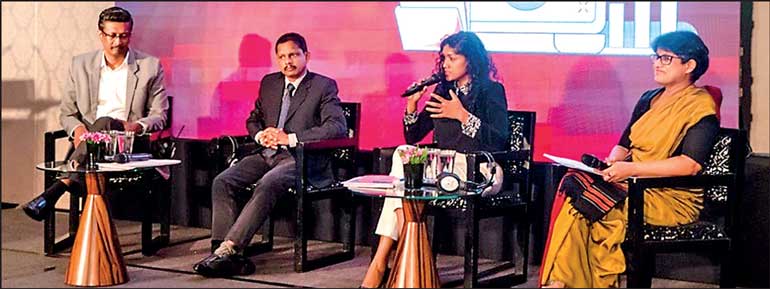Monday Feb 23, 2026
Monday Feb 23, 2026
Friday, 22 September 2023 00:40 - - {{hitsCtrl.values.hits}}

Over 70% of public authorities have disclosed online less than 40% of the information they were required to by the Right to Information Act (RTIAct), according to a recent study conducted by Verité Research. The Ministries of Agriculture and Public Administration disclosed just over half the information they are required to disclose and ranked highest in the assessment.
The Offices of the President and Prime Minister had disclosed less than 20% of required information and ranked among the least compliant – the Ministry of Technology scoring lowest overall.
The study also found very high language bias across most public authorities. Only the Office of the President and Ministry of Wildlife consistently published information online in all three languages. Overall, across all public authorities, nearly half of all information online was disclosed in English, but only 37% was disclosed in Sinhala and just 29% in Tamil.
These findings were highlighted in a report launched recently by Verité Research titled ‘Proactive Disclosure under the RTI Act in Sri Lanka: Ranking Public Authorities’.
Speaking at the launch event, Verité Research Executive Director Dr. Nishan de Mel explained about the expectations of democracy. “Government has an obligation to share information that people are entitled to have. RTI Act regulations decree that information should be shared proactively and specify the information that should be shared online,” he said.
The RTInAct and its subsequent regulations require: ministers and public authorities to regularly publish reports, inform the public about current projects, and routinely communicate up-to-date information about their operations, budgets, and services online.
The study by Verité Research assessed the compliance of 29 ministries and the Offices of the President and Prime Minister with online proactive disclosure requirements under the RTI Act. The monitoring framework covered two dimensions: (a) whether information was proactively disclosed, and (b) the usability of the information disclosed.
Verité Research utilised the scores from the assessment and calculated Sri Lanka’s Government Openness Index. It shows that Government Openness has increased in the last six years: from 25% in 2017 to 33% in 2022, but remains at a low level.
The full report is available at: www.veriteresearch.org/wp-content/uploads/2023/09/20230904_ProactiveDisclosureReport_F_AM-1.pdf